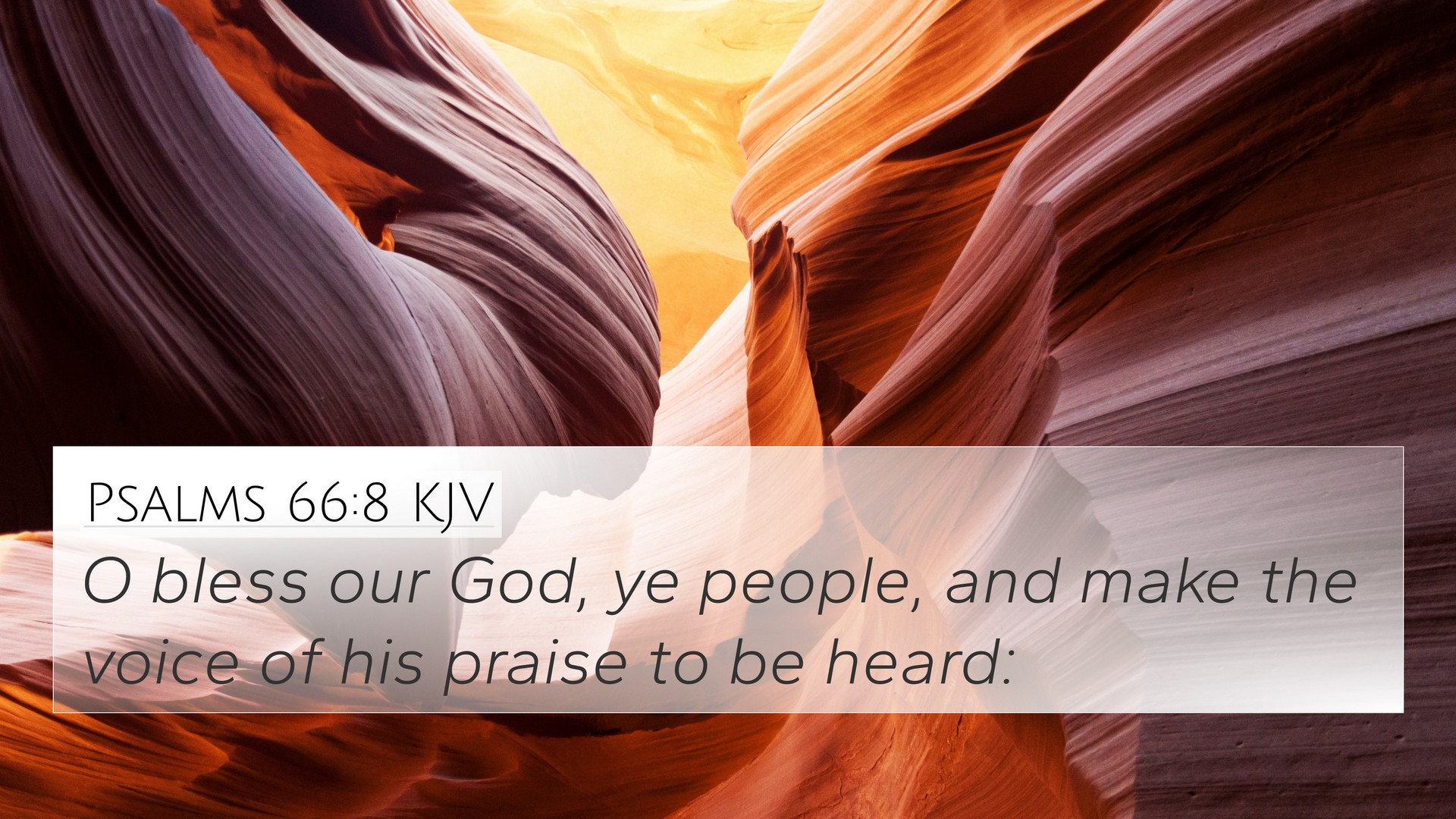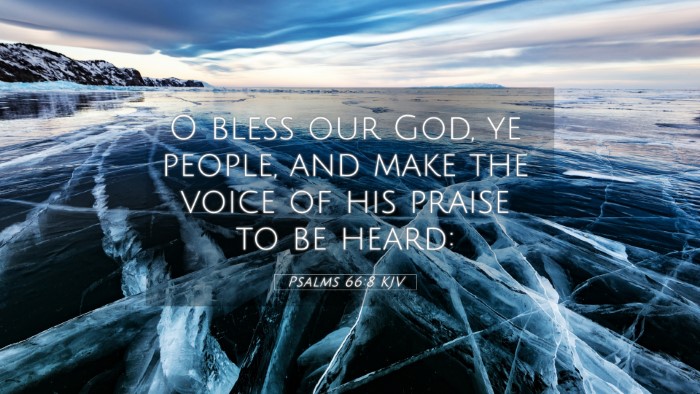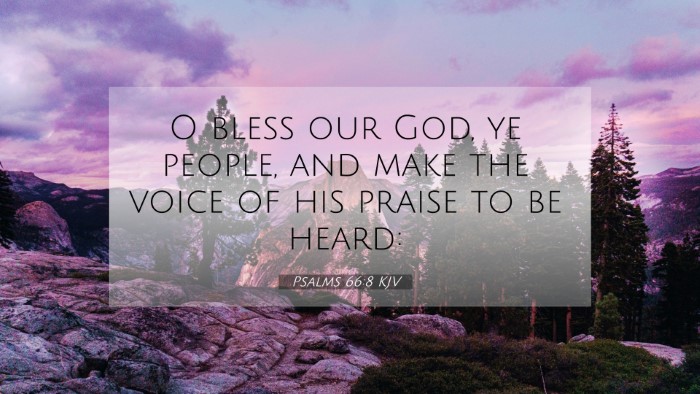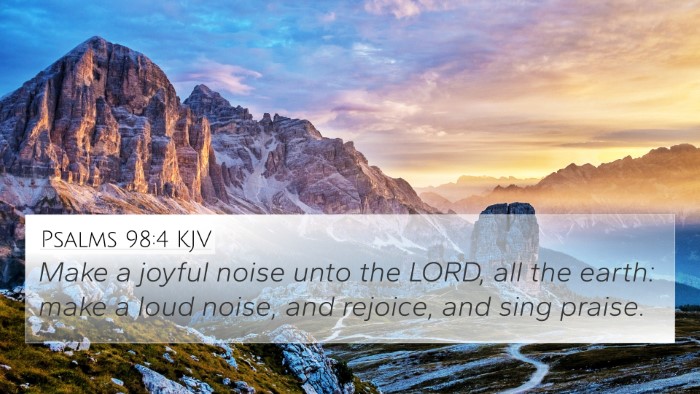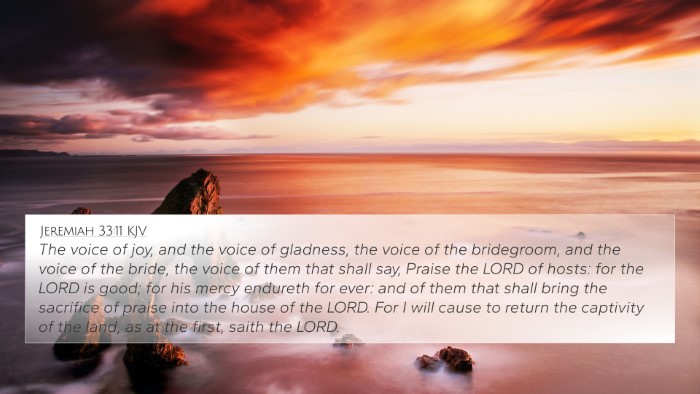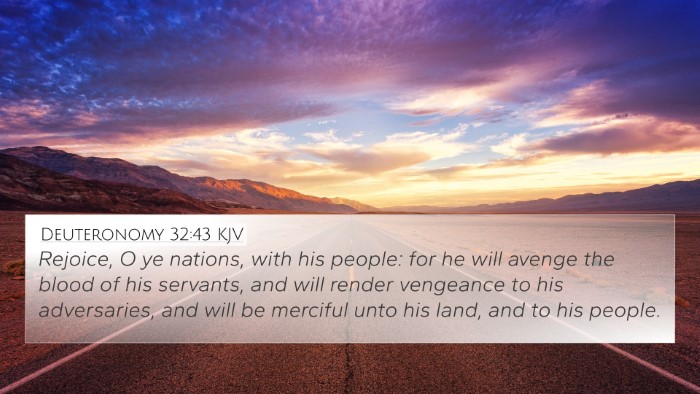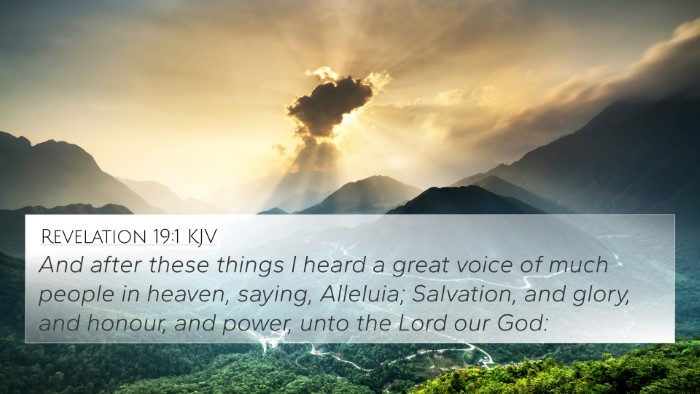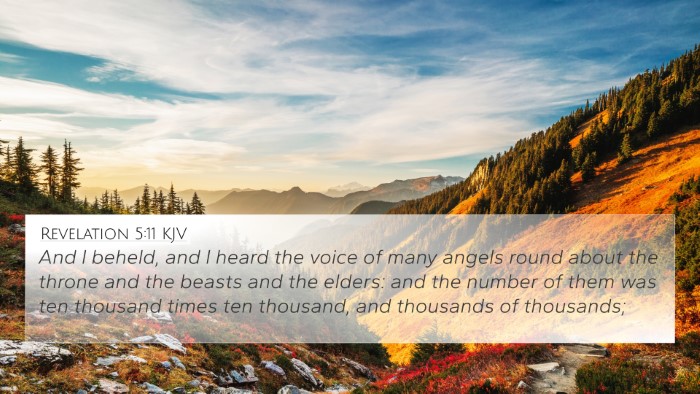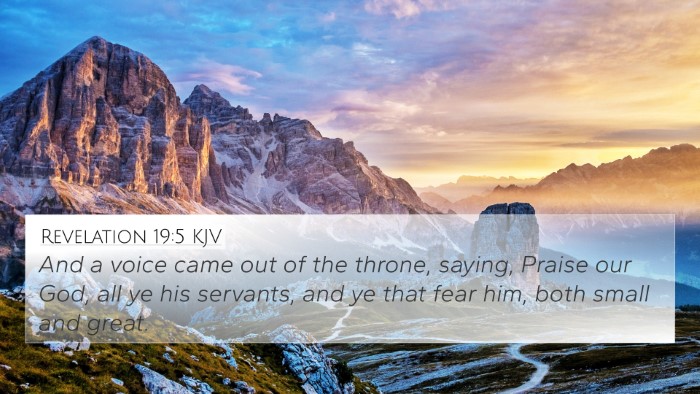Understanding Psalms 66:8
Bible Verse: Psalms 66:8 - "O bless our God, ye people, and make the voice of his praise to be heard."
Overview
Psalms 66:8 is a call to collective praise for the Lord, emphasizing the importance of communal worship and expression of gratitude. It invites people to actively engage in glorifying God, making their voices heard in celebration of His goodness and mercy.
Commentary Insights
-
Matthew Henry:
Henry interprets this verse as an exhortation for the congregation to come together in worship, recognizing the Lord's mighty deeds. He points out that communal praise strengthens bonds among believers and affirms their faith.
-
Albert Barnes:
Barnes highlights the significance of vocal praise, noting that God deserves to have His name magnified through believers’ collective voices. He emphasizes the source of blessings from God and the response of His people in gratitude.
-
Adam Clarke:
Clarke expands on the historical context, suggesting that this psalm likely emerged after a period of trial and deliverance. It serves as a reminder of God’s past actions and encourages believers to respond with praise and thankfulness.
Thematic Bible Verse Connections
Psalms 66:8 connects to various themes in Scripture that emphasize worship, gratitude, and community. Below are relevant connections:
- Psalm 100:4-5: "Enter into his gates with thanksgiving, and into his courts with praise..." - Calls for joyful entry into God’s presence.
- Hebrews 13:15: "By him therefore let us offer the sacrifice of praise to God continually..." - Encourages continual praise to God as a spiritual act.
- 1 Peter 2:9: "But ye are a chosen generation, a royal priesthood..." - Highlights the priestly role of believers in proclaiming God's praises.
- Revelation 5:12: "Worthy is the Lamb that was slain to receive power, and riches, and wisdom..." - Future worship of Christ as an ultimate expression of praise.
- Psalms 95:1-2: "O come, let us sing unto the Lord: let us make a joyful noise to the rock of our salvation." - A call to worship through song.
- Psalms 107:22: "And let them sacrifice the sacrifices of thanksgiving, and declare his works with rejoicing." - Encourages thanksgiving as a form of worship.
- Colossians 3:16: "Let the word of Christ dwell in you richly... singing with grace in your hearts to the Lord." - Promotes the idea of communal singing and worship.
Cross-References and Inter-Biblical Dialogue
This verse can also be understood through detailed study of cross-references that highlight similar themes and ideas found throughout the Bible:
- Psalms 34:1: "I will bless the Lord at all times: his praise shall continually be in my mouth."
- Psalms 147:1: "Praise ye the Lord; for it is good to sing praises unto our God; for it is pleasant; and praise is comely."
- Ephesians 5:19-20: "Speaking to yourselves in psalms and hymns and spiritual songs, singing and making melody in your heart to the Lord."
- Psalms 150:6: "Let everything that hath breath praise the Lord. Praise ye the Lord."
Conclusion
The essence of Psalms 66:8 is a profound declaration of collective worship. Its call resonates throughout Scripture and reflects the heart of God’s people, connecting them in the act of praising and worshiping their Creator. Through various tools for Bible cross-referencing, believers can explore these themes in depth and nurture their spiritual lives, enhancing their understanding of biblical teachings.
SEO Keywords Inclusion
This examination of Psalms 66:8 integrates keywords for better contextual understanding:
- Connections Between Bible Verses: This verse serves as an essential link in discussions about worship throughout the Bible.
- Cross-Referencing Biblical Texts: Use of provided references creates an inter-Biblical dialogue enhancing understanding.
- Thematic Bible Verse Connections: The central theme of worship is reinforced through multiple scriptures.
- How to Use Bible Cross-References: Engage with the text by exploring associated scriptures listed herein.
- Comparative Bible Verse Analysis: Analyses of these passages reveal deeper insights into the nature of worship.
